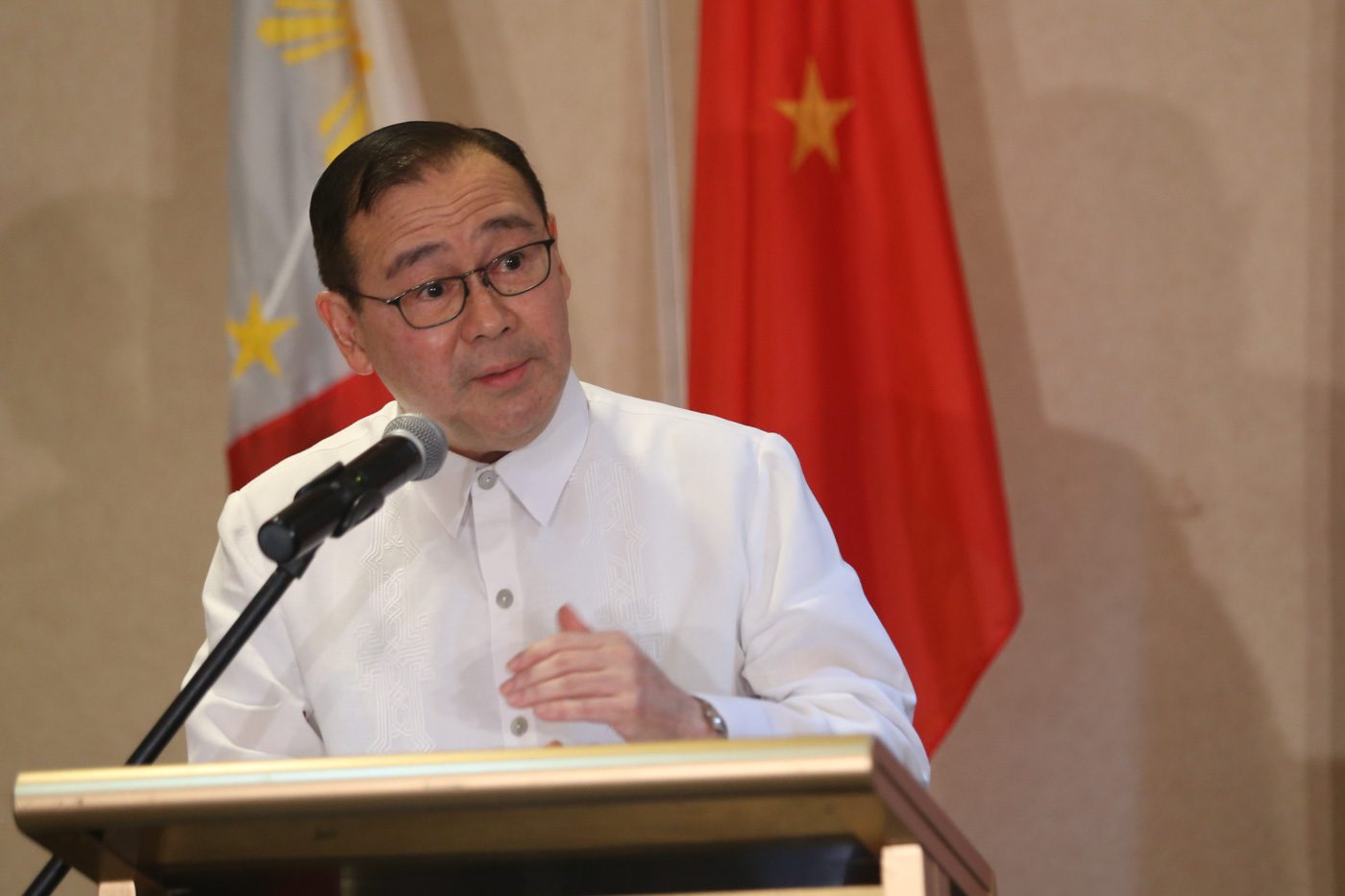SUMMARY
This is AI generated summarization, which may have errors. For context, always refer to the full article.

MANILA, Philippines – Philippine Foreign Secretary Teodoro “Teddyboy” Locsin Jr challenged the media on Thursday, November 15, to verify if China has indeed installed 3 weather stations in the West Philippine Sea.
The Chinese Foreign Ministry itself earlier announced that it has built 3 weather stations in the Spratly Islands in the West Philippine Sea, prompting Vietnam to file a diplomatic protest.
“I don’t even know if there are weather stations. Apparently media knows about it, but nobody else seems to,” Locsin said in a press conference on the sidelines of the Association of Southeast Asian Nations Summit in Singapore.
ABS-CBN reporter Pia Gutierrez then asked Locsin if the Philippine government has made efforts “to at least verify these reports that China has installed” weather stations. Locsin said the media will have to ask Defense Secretary Delfin Lorenzana, “but I believe you should first verify it yourselves.”
“If you heard that, it’s very easy to just fly over it. Don’t you have that capability? I mean that’s a story and we can’t keep—, that’s only my view, we can’t respond to something that just pops up in the internet. Have you seen it? Apparently it can be done by media,” said Locsin, a former TV host and newspaper publisher. (READ: FAST FACTS: Who is DFA chief Teddyboy Locsin?)
Gutierrez then pointed out that the Chinese Foreign Ministry itself announced that it has built weather stations in the West Philippine Sea.
GUTIERREZ: The foreign ministry of China actually announced that they are—
LOCSIN: Okay, good. Good. And they called them weather stations. Right?
GUTIERREZ: Yes, sir.
LOCSIN: Oh wow. There it is. You take their word for it then? Right?
GUTIERREZ: What’s our—?
LOCSIN: You do? I don’t get it. What do you want us to do? You mean, China announced it has put up weather stations? Fine, okay. And then?
GUTIERREZ: What’s our response to that, Sir?
LOCSIN: To weather stations? Well, there it is. Weather stations. I don’t think they’re claims of ownership, they’re claims of sovereignty. They’re weather stations. I’d have to ask, you know I’ll ask the military later what they feel about it.
Locsin was later asked if the Philippines considers the Chinese weather stations a “non-issue.”
“I wouldn’t say that. You know, that has not been cleared. I’d like to get the secretary of defense to tell me,” Locsin said.
“You guys claim there is a weather station out there. I suggest you guys fly there. Why not? That’s what I’ll tell you. That’s what I did as a journalist. When there was a conflict in Mindanao, I took my team into the battlefield on the way to Abubakar. That’s how we did it in the old days,” he added.
Notes verbales? They’re ‘notes verbiage’
When asked if the Philippines would file any type of protest against China given recent developments, Locsin said no, and recalled the time when he was the Philippines’ permanent representative to the United Nations.
“In fact when I was in the UN, they would keep asking me to file notes verbales. I said no, I call that notes verbiage,” he said.
“Every time you send a note verbale and no one responds to it, what does that look like? When you keep sending those notes – I know some people say, you just keep on sending them – what I keep calling it is banging your head against the wall,” Locsin added.
The best thing to do, he said, “is assert our rights” under the United Nations Convention on the Law of the Sea and the Hague tribunal ruling that upheld the Philippines’ rights over the West Philippine Sea.
On filing protests, he said, “Let them do it, if they want, the critics back home.”
Locsin was also asked about critics’ views that failing to assert the ruling in regional conferences “is tantamount to giving it up.”
“That’s what they’re saying. The critics are saying, if you don’t repeatedly assert it, you’re giving it up. They don’t know their law. I’m sorry, you know, not everyone went to a good school,” said Locsin, who holds a master of laws degree from Harvard University.
“But that’s not true. It is now a part of international law,” he said. “It’s just there.” – Rappler.com
Add a comment
How does this make you feel?
There are no comments yet. Add your comment to start the conversation.